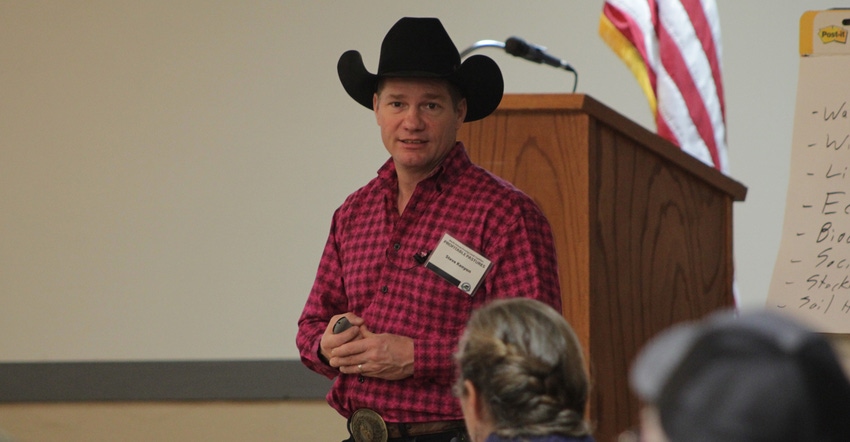
It’s not just the internal workings that make a farm or ranch successful, but also the management of external relationships.
During a recent conference put on by the North Dakota Grasslands Coalition in Bismarck, N.D, Steve Kenyon of Greener Pastures Ranching in Busby, Alberta, gave a presentation on “Peopling the Business,” where he told attendees to think about the other people who help farms and ranches succeed.
“Let’s think about a bank account,” Kenyon said. “You want to keep that balance positive. So with our social bank accounts, we need to always be depositing back with our customers, and every day is an opportunity to make a deposit in your relationship with someone before you may need to make a withdrawal.”
Relationships critical
Kenyon runs a custom-grazing business that matches cattle herds with sections of land to keep herds together. “Instead of cattle owners keeping 50 head over here, another 50 over there, 75 over here, what we do is make the connections with landowners to keep herds together on one piece of land,” he said.
His business then manages the natural resources for the landowners to improve economic and environmental sustainability. This relationship allows Kenyon to feed hungry cattle for producers, while also working to improve the land the cattle graze.
“I take not my cattle, graze them on not my land and feed them with not my hay,” Kenyon explained. “Right now, I’m working with 18 different landowners and running six different cattle herds on their land.”
His business relies on working well with other people, and he argues that human resources on his operation are just as important as his cattle management.
“My truckers, landowners, hay haulers, cattle owners — there are a lot of different people that I need to be able to do what I do,” he said.
With an uptick in land prices when the ethanol market increased in Canada, Kenyon said his human resources were what continued to allow him access to land. “The only reason I still have a bunch of this land is because I’ve been creating and growing relationships with these landowners for years. I don’t drink coffee, but I go over for coffee quite often with many of these owners,” he said.
Work with who is there
Sometimes, Kenyon’s work goes beyond his own business into brokering two of his networks together. “Customers will always come and go, but I do my best to try and foster relationships along the way,” he said. “I’ll have that unique situation where I have someone who owns cattle and someone who sells hay, and connect them together to take the bales up for the cattle. That takes trust, because both parties have to trust me as the middle man.”
How does Kenyon build this trust among his customers? Understanding personality differences and always working to build trust with customers.
“I’m always working to increase deposits in my customers�’ accounts, working to create trust with them,” he said. “There’s only three things you can control in your life: your thoughts, your feelings and your actions.”
Kenyon has converted a well-accepted personality test to use with his customers and speaking engagements. “I love insects and the role they play in biodiversity, so I’ve adapted these tests” using them.
The test lets producers put themselves into one of four categories:
Dragonflies have dominant personalities.
Butterflies are social and influencing.
Ants are hardworking, dependable and consistent.
Bumblebees are perfectionists, systematic and analytical.
For Kenyon, knowing his customers’ personality types is more about how he can best communicate with them. “It’s about adjusting how I communicate and how I can relate to them. That was really the breakthrough in my business,” he said.
For producers, farmers and ranchers, Kenyon gives this advice. “Remember to think through your thoughts, your feelings and your actions. Human resources are the most important part of what we do whether it’s with our customers, landowners or our neighbors.”
Find more information, visit Greener Pastures Ranching.
About the Author(s)
You May Also Like






